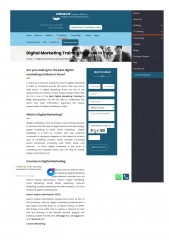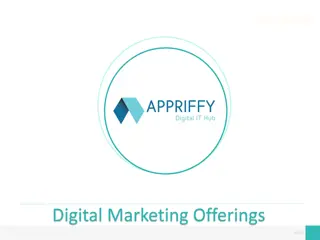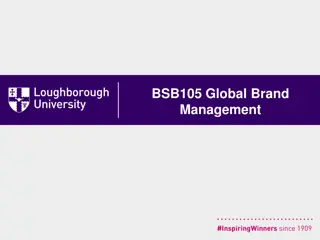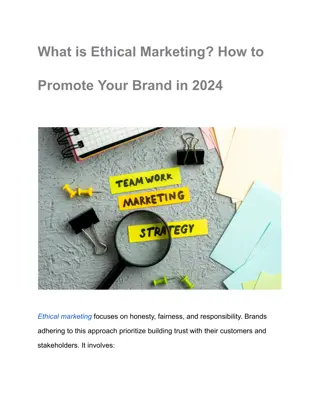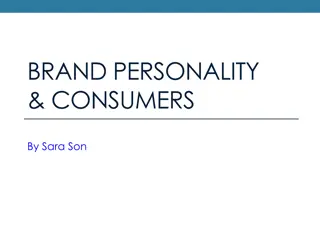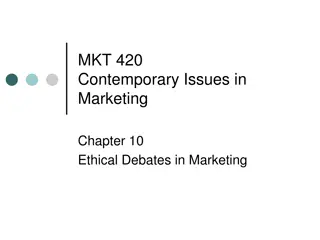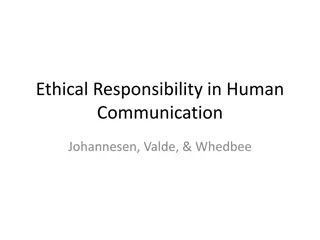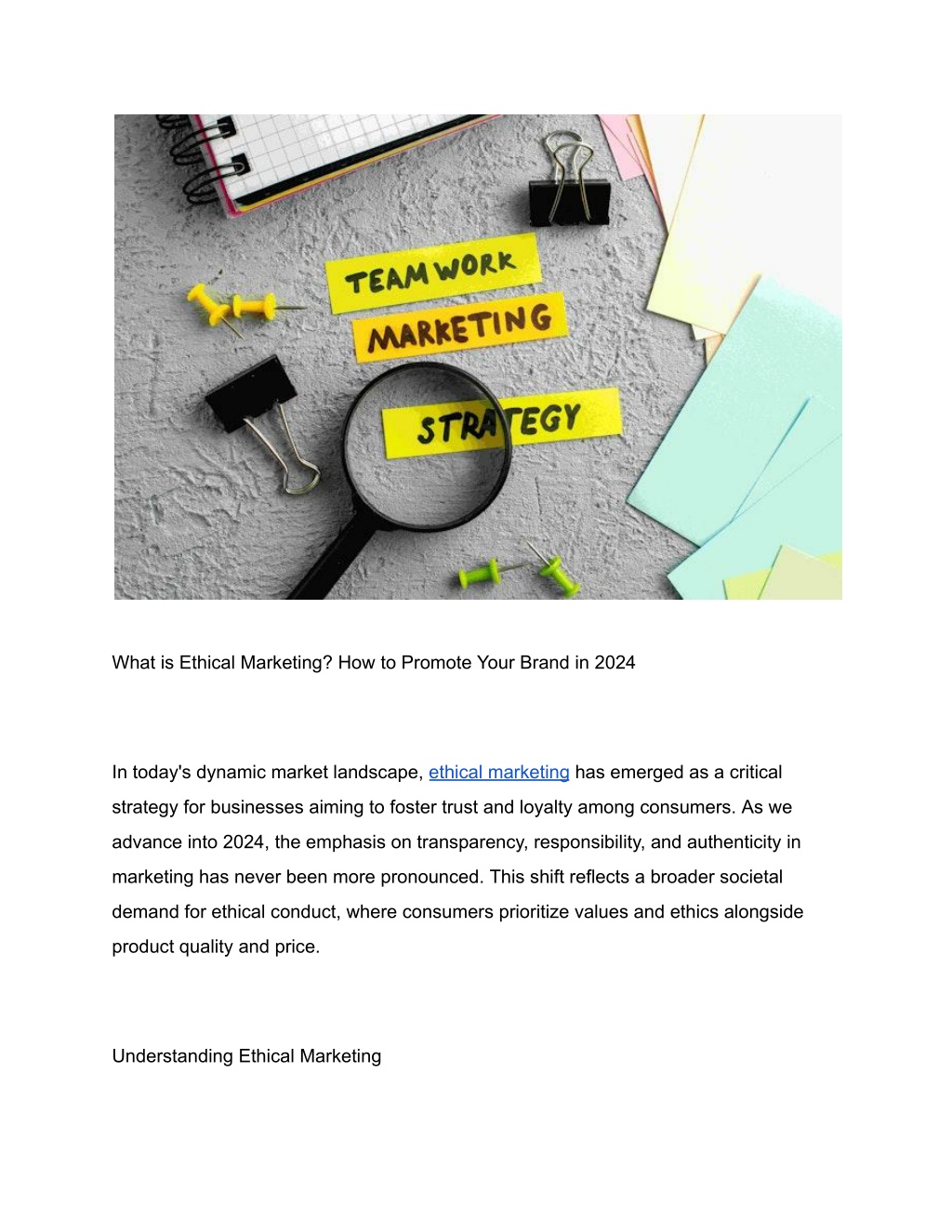
What is Ethical Marketing? How to Promote Your Brand in 2024
In today's dynamic market landscape, ethical marketing has emerged as a critical strategy for businesses aiming to foster trust and loyalty among consumers. As we advance into 2024, the emphasis on transparency, responsibility, and authenticity in ma
Download Presentation

Please find below an Image/Link to download the presentation.
The content on the website is provided AS IS for your information and personal use only. It may not be sold, licensed, or shared on other websites without obtaining consent from the author. Download presentation by click this link. If you encounter any issues during the download, it is possible that the publisher has removed the file from their server.
E N D
Presentation Transcript
What is Ethical Marketing? How to Promote Your Brand in 2024 In today's dynamic market landscape, ethical marketing has emerged as a critical strategy for businesses aiming to foster trust and loyalty among consumers. As we advance into 2024, the emphasis on transparency, responsibility, and authenticity in marketing has never been more pronounced. This shift reflects a broader societal demand for ethical conduct, where consumers prioritize values and ethics alongside product quality and price. Understanding Ethical Marketing
Ethical marketing involves promoting products and services with honesty, integrity, and a strong sense of responsibility. It goes beyond merely avoiding deceptive practices; it encompasses actively promoting fairness, respect for consumer privacy, and environmental sustainability. This approach not only aligns with legal requirements but also resonates with the growing consumer base that values social and environmental stewardship. Key Elements of Ethical Marketing Transparency and Honesty: At its core, ethical marketing is about being transparent with customers. This means providing clear, accurate information about products, services, and business practices. Brands should avoid misleading claims and be upfront about any potential drawbacks or limitations. Consumer Privacy: With the rise of digital marketing, protecting consumer data has become a crucial aspect of ethical marketing. Companies must ensure that they handle personal information responsibly, use data ethically, and provide customers with control over their data. Social Responsibility: Ethical marketing extends to how companies interact with the wider community. This includes supporting charitable causes, engaging in fair trade practices, and ensuring ethical labor practices. Brands that demonstrate a genuine commitment to social causes often build stronger connections with their customers.
Environmental Sustainability: As environmental concerns grow, consumers increasingly favor brands that adopt sustainable practices. This includes using eco-friendly materials, reducing carbon footprints, and promoting products that are designed to be environmentally friendly. Why Ethical Marketing Matters The importance of ethical marketing is underscored by its impact on consumer trust and brand loyalty. In an era where information is readily accessible, consumers are more informed and discerning. They are quick to recognize insincerity and are more likely to support brands that align with their values. Ethical marketing helps build a positive brand image, fosters long-term relationships, and differentiates a brand from its competitors. Implementing Ethical Marketing Strategies in 2024 To effectively implement ethical marketing, businesses should start by establishing clear ethical guidelines that align with their core values. Training employees to uphold these values and ensuring consistency across all marketing channels is essential. Furthermore, businesses should engage in open dialogue with their customers, actively seek feedback, and make adjustments as needed.
Brands can also leverage storytelling to highlight their ethical initiatives, such as sustainable sourcing, community involvement, or efforts to reduce environmental impact. By sharing these stories authentically, companies can connect with consumers on a deeper level and inspire loyalty. Conclusion As we navigate through 2024, ethical marketing will continue to be a driving force in shaping consumer behavior and brand success. By prioritizing honesty, transparency, and responsibility, brands can not only meet the expectations of their customers but also contribute to a more ethical and sustainable business landscape. The future of marketing lies in its ability to reflect the values of society, and ethical marketing is the key to unlocking this potential. For a deeper dive into the principles and strategies of ethical marketing, visit this comprehensive article.

